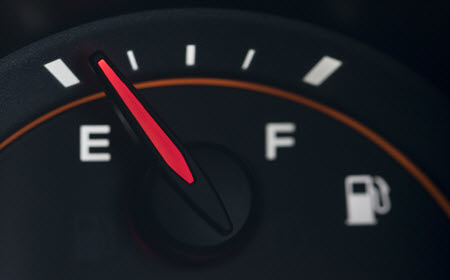Reasons Your BMW Fuel Tank Rusts In Allentown
by schearerswpadmin April 24, 2019If you drive a BMW, then it’s likely you’re a practical, reliable person, with a strong sense for style. You enjoy simple, understated elegance and a vehicle that is built to last, not showy spoilers and mechanical gimmicks made to suit a trend.
However, even the most superior quality, cars can become damaged with time, use, and age. While a rusting fuel tanksconstitutes a less common issue, it is quite inherent in older cars, and, as BMWs were built to last, you may find yourself facing this issue at some point in your ownership journey.
In this article we’ll be exploring some of the main reasons for troubles with rusting, as well as some of the issues they might cause.
Common Causes Of A Rusty Fuel Tank
While this list aims to highlight the most common reasons, every car is different, as is ever driver, so some signs and symptoms may more specific to you. It is important to take your vehicle in for service any time you notice a change in how your car operates.
1. Metal Tanks
Many older, vintage, or classic cars were constructed with metal gas tanks, and as we all know, with time and moisture, metal will rust. If your car is more recent however, you shouldn’t need to worry about this factor, as the tank on your BMW will be made of plastic.
2. Location
The climate of where you live can heavily impact the likelihood of a rusty fuel tank. If you live on the coast, you may find that salty air can play havoc with your vehicle’s metal components. Also, if you live somewhere that is prone to snow, then the salt that is applied to the roads can also make its way inside your car, causing rust.
3. Stationary Car
If for whatever reason you find yourself unable to drive your car for some time, then it is always best to leave your vehicle with a full tank. Changes in temperature can impact upon the condition of the fuel, and can cause condensation in the tank. This condensation can then turn to rust, and can cause all manner of troubles for your BMW.
4. Flood Damage
If your car has been exposed to flooding recently, even if minor, then you may need to check for rust throughout your car in coming months. This includes the fuel tank, as you’ll be surprised as to just how far even the smallest amount of water can make its way deep into your car.
5. Ethanol Based Gasoline
Gasolines with an ethanol base instead of straight gasoline is far more damaging to your gas tank. If you must use ethanol fuels, you can help prevent this problem by using rust prevention fuel additives.
Some Of The Signs Of A Rusted Tank
A rusty gas tank can remain largely undetected for a large period of time, and many drivers are unaware of the problem until the accumulated rust dislodges and makes its way into the other parts and systems of the car.
1. Fuel Pump Problems
You may find your engine isn’t running as smoothly as it used to. This can often be caused by the fuel pump not working properly due to rust breaking off from the gas tank and clogging the filter and pump.
2. A Leaking Tank
In severe cases, the integrity of your gas tank may become compromised leading to fuel leaks. This can be very dangerous, and if you can smell gas around your car, stop driving it immediately and seek the aid of a professional mechanic.
3. Reduced Fuel Economy
If you have a rusty gas tank, you could notice your BMW starts achieving less miles per gallon than normal. This is due to flakes of rust from the gas tank contaminating the fuel and blocking the fuel injectors, or filters.
Seeking Repairs
No matter the cause or the symptoms, if you have  issues surrounding a rusty gas tank, you’ll need to seek the help of a qualified mechanic. Luckily, if you’re a BMW owner in Allentown, Bethlehem, Macungie, or any other surrounding areas of Pennsylvania, then Schearer’s Sales & Service has got you covered! With great rates and a 24 month/24,000 mile warranty, you can drive away happy, knowing that everything has been taken care of.
issues surrounding a rusty gas tank, you’ll need to seek the help of a qualified mechanic. Luckily, if you’re a BMW owner in Allentown, Bethlehem, Macungie, or any other surrounding areas of Pennsylvania, then Schearer’s Sales & Service has got you covered! With great rates and a 24 month/24,000 mile warranty, you can drive away happy, knowing that everything has been taken care of.





